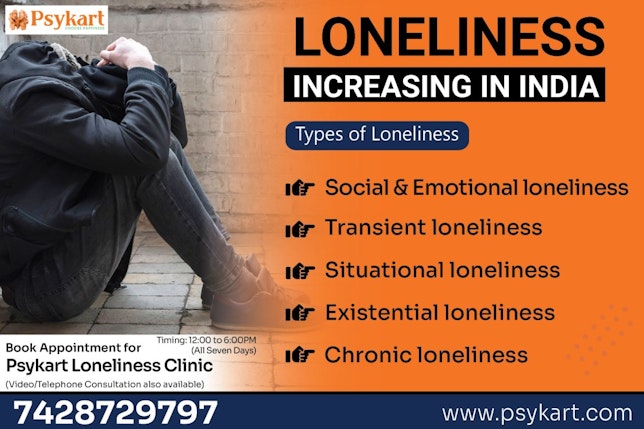Why Is Loneliness Increasing In India?
Share this Post to earn Money ( Upto ₹100 per 1000 Views )
In India, loneliness manifests through a complex interplay of cultural, societal, economic, and demographic factors. Despite being a densely populated country with a rich tapestry of social connections and familial ties, loneliness is increasingly recognized as a significant issue affecting individuals across various age groups and backgrounds. Understanding the causes of loneliness in India requires a nuanced exploration of these multifaceted influences.
Firstly, one prominent cause of loneliness in India is the rapid urbanization and migration from rural to urban areas. As people leave their native villages and move to bustling cities in search of better economic opportunities, they often find themselves detached from their traditional support networks and community structures. This disconnection from familiar surroundings and social bonds can lead to feelings of isolation and loneliness, Depression and anxiety particularly among migrant workers and urban dwellers living far from their hometowns.
Additionally, the breakdown of extended family systems and changing social dynamics contribute to loneliness in India. Traditionally, Indian society has been characterized by strong family ties and intergenerational support systems. However, with modernization and urbanization, nuclear families are becoming more prevalent, leading to reduced opportunities for social interaction and support within extended family networks. This shift can leave individuals feeling isolated, especially older adults who may lack companionship and emotional support in their later years.
If you also know about Rehabs center, Psykart clinic is one of the best rehabs center in India for batter treatment.
Moreover, societal stigmas surrounding mental health issues and seeking professional help exacerbate feelings of loneliness in India. Despite growing awareness, mental health remains a taboo topic in many communities, leading individuals experiencing loneliness to suffer in silence rather than seeking support. The fear of judgment or social ostracization prevents many from opening up about their feelings, perpetuating a cycle of isolation and distress.
Furthermore, the pervasive influence of social media and technology contributes to loneliness among Indians, particularly the younger generation. While digital connectivity has facilitated communication and social interaction, it has also led to a paradoxical sense of isolation. Constant exposure to curated images of seemingly perfect lives on social media platforms can exacerbate feelings of inadequacy and loneliness, as individuals compare themselves unfavorably to their peers.
Economic disparities and poverty also play a significant role in exacerbating loneliness in India. Those living in impoverished conditions often face social exclusion and lack access to resources that foster social connections, such as community centers or recreational facilities. Economic hardships can lead to social isolation, as individuals prioritize meeting basic needs over seeking out social interactions or participating in leisure activities.
Moreover, cultural norms and gender roles influence the experience of loneliness in India. Women, especially in patriarchal societies, may experience loneliness due to restricted mobility, limited opportunities for socialization outside the home, and societal expectations regarding marriage and family roles. Similarly, individuals belonging to marginalized communities, such as LGBTQ+ individuals or religious minorities, may face social ostracization and discrimination, leading to profound feelings of loneliness and alienation.
In conclusion, loneliness in India is a multifaceted issue shaped by urbanization, changing family structures, societal stigmas, technological advancements, economic disparities, and cultural norms. Addressing loneliness requires a comprehensive approach that acknowledges these interconnected factors and involves community-based interventions, mental health services campaigns, social support programs, and policy initiatives aimed at fostering inclusive and supportive environments for all individuals. By recognizing and addressing the root causes of loneliness, India can work towards building a more connected and resilient society where every individual feels valued and supported.
Helpline – +91-7428-729-797
Reach Psykart Loneliness Clinics – Choose Psykart Clinic
Source – https://medium.com/@psykart.com/why-is-loneliness-increasing-in-india-3508c6a4a7cf









